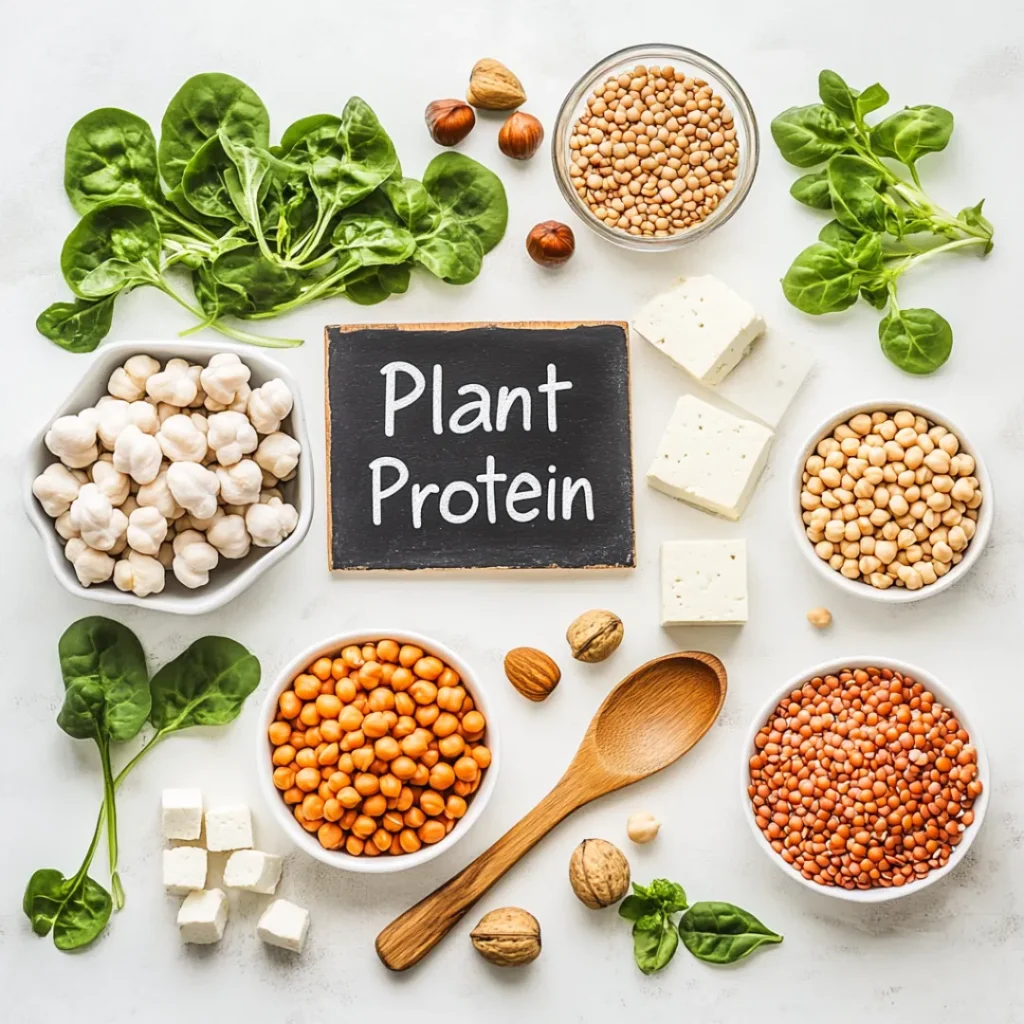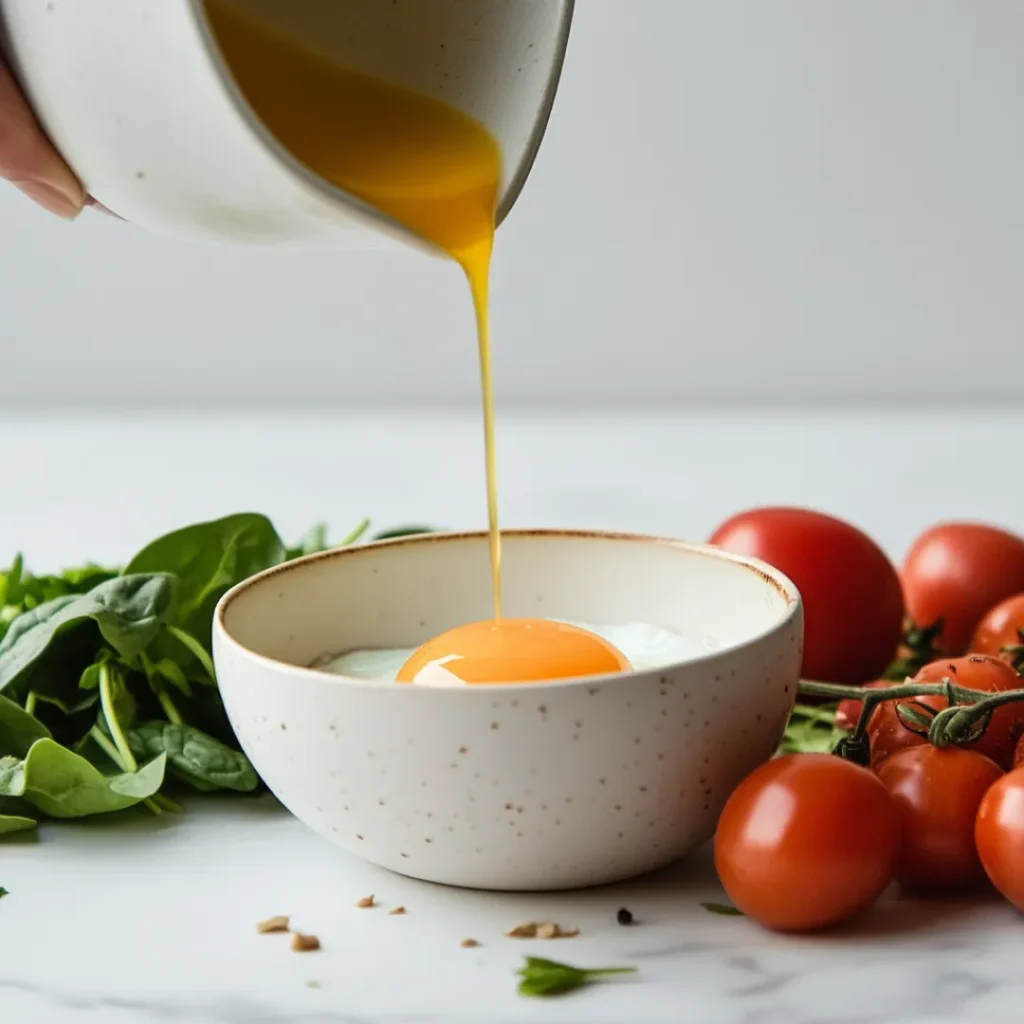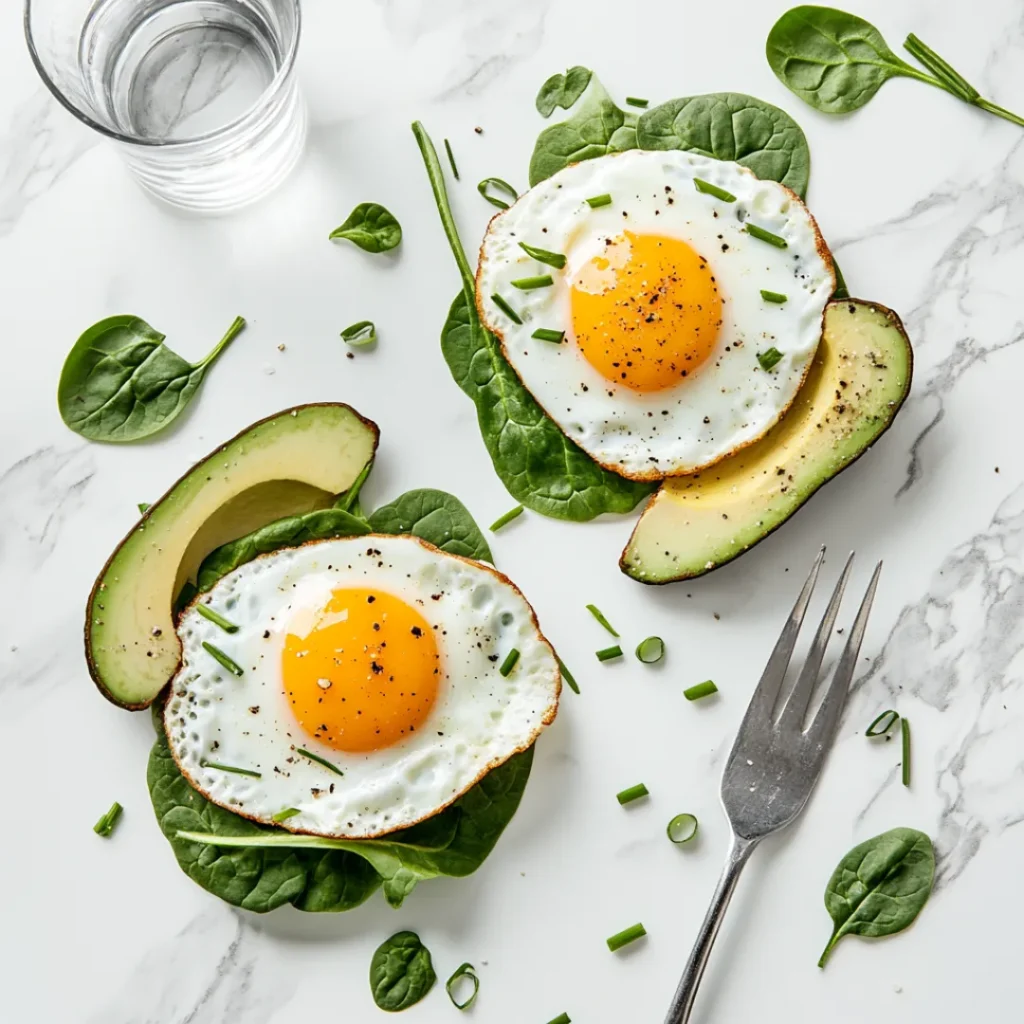Understanding Protein Requirements
Is 2 Eggs a Day Enough Protein?
So, how much Enough Protein does the average person actually need? Well, it depends on a few factors, like age, activity level, and overall health goals. For most adults, the Recommended Daily Allowance (RDA) is about 0.8 grams of protein per kilogram of body weight . That means if you weigh 150 pounds (around 68 kg), you’d need roughly 54 grams of protein a day.
But hold up—this number isn’t set in stone. Athletes, pregnant women, and folks recovering from injuries might need more. On the flip side, sedentary individuals might not need as much. Honestly, it’s all about finding what works for you .
And here’s a fun fact: protein isn’t just about muscles. It’s also crucial for repairing tissues, making enzymes, and keeping your immune system in tip-top shape. Without enough of it, you might feel sluggish, hungry all the time, or even notice your hair thinning. Yikes!
Table of Contents
How Much Enough Protein Do 2 Eggs Provide?
Now, let’s talk about eggs. One large egg packs around 6 grams of protein , which is pretty impressive for such a tiny package. So, if you eat two eggs, you’re looking at about 12 grams of protein . Not too shabby, right?
But here’s the kicker: while eggs are a great source of high-quality protein, they’re not the only game in town. Foods like chicken breast (31 grams of protein per 100 grams ), tofu (8 grams per 100 grams ), and lentils (9 grams per half-cup ) also bring plenty of protein to the table.
Is 2 Eggs a Day Enough Protein for Most People?
Alright, so back to our burning question: Is 2 eggs a day enough protein ? The short answer is—it depends. For someone who’s not super active, those 12 grams could be a solid start to their daily intake. But if you’re hitting the gym hard or following a plant-based diet, you’ll probably need to round out your meals with other protein-rich foods .
For example, pairing eggs with whole grains or veggies can create a more balanced meal. Check out this guide to plant-based proteins for some creative ideas.
The Role of Eggs in a Balanced Diet

Nutritional Profile of Eggs Beyond Enough Protein
Eggs are more than just a Enough Protein powerhouse—they’re like the Swiss Army knife of nutrition. Along with their 6 grams of protein per egg , they also pack a punch of essential vitamins and minerals. For instance, eggs are one of the few foods that naturally contain vitamin D , which is crucial for bone health and immune function. Plus, they’re loaded with B12 and choline , both of which play key roles in brain health.
You know what’s wild? Choline, found in the yolk, is something many people don’t get enough of. It helps support memory and cognitive function, so eating eggs might literally keep your brain sharp. Honestly, it’s kind of amazing how much goodness is packed into such a small package.
And here’s the thing—eggs aren’t just nutritious; they’re versatile too. Whether you scramble them, boil them, or bake them into a frittata, they can fit into almost any meal. If you’re looking for ways to jazz up your breakfast routine, check out these easy egg recipes .
Are Eggs a Complete Enough Protein Source?
So, what makes eggs stand out from other Enough Protein sources? Well, they’re considered a complete protein . This means they contain all nine essential amino acids your body needs but can’t make on its own. These amino acids are like the building blocks of life, helping repair muscles, boost immunity, and keep your metabolism humming along.
In fact, eggs are often used as the gold standard when comparing the quality of other protein sources. Foods like beans or rice might be missing one or two of these amino acids, but eggs? They’ve got it all covered. That’s why they’re a favorite among athletes and fitness buffs who need reliable, high-quality Enough Protein
But let’s not forget—while eggs are awesome, relying solely on them isn’t always the best idea. Mixing things up with other protein-rich foods ensures you’re getting a wide range of nutrients. Speaking of which…
Combining Eggs with Other Foods for Optimal Nutrition
Pairing eggs with other nutrient-dense foods can take your meals to the next level. For example, adding spinach or avocado to your omelet boosts fiber and healthy fats. Or, if you’re aiming for a plant-based twist, try tossing some black beans or quinoa alongside scrambled eggs for extra protein and texture.
The bottom line? While Is 2 eggs a day enough protein might work for some folks, combining eggs with other foods creates a more balanced diet. Think of it like building a nutritional safety net—you’re covering all your bases by mixing and matching different ingredients.
Health Implications of Eating 2 Eggs Daily

Can You Eat Too Many Eggs? Debunking Myths About Cholesterol
Let’s address the elephant in the room: cholesterol. For years, people were told to limit egg consumption because of their high cholesterol content. But guess what? Recent studies show that moderate egg intake doesn’t raise heart disease risk for most people. In fact, dietary cholesterol has less impact on blood cholesterol levels than once thought.
That said, moderation is still key. Eating two eggs a day is generally fine for most folks, but if you’re already dealing with high cholesterol or heart issues, it’s worth chatting with your doc. And hey, no one’s saying you have to eat eggs every single day. Variety is the spice of life, after all!
Benefits of Including Eggs in Enough Protein Diet
Now, let’s talk about the perks of keeping eggs in your meal rotation. First off, their high protein content can help with weight management. Protein keeps you feeling full longer, which means you’re less likely to snack on junk food between meals.
Plus, eggs are budget-friendly and Enough Protein to prepare—a win-win for busy mornings. And thanks to nutrients like choline, they may even give your brain a little boost. Honestly, who wouldn’t want smarter mornings?
If you’re curious about how eggs stack up against other breakfast options, take a peek at this article on high-protein breakfast ideas . Spoiler alert: eggs hold their own pretty well.
Potential Risks of Overconsumption
Of course, nothing’s perfect—including eggs. Some people are allergic or sensitive to them, which can cause digestive upset or skin reactions. Additionally, there’s the environmental factor. Large-scale egg farming can have a big carbon footprint, so opting for pasture-raised or local eggs might be a better choice if sustainability matters to you.
Another thing to consider is monotony. Relying too heavily on any one food—even something as nutritious as eggs—can lead to boredom or nutrient gaps. That’s why asking yourself, “Is 2 eggs a day enough protein ?” is only part of the equation. Balancing eggs with other foods ensures you’re not missing out on other vital nutrients.
Alternatives and Complements to Egg Protein Enough Protein

Plant-Based Protein Options for Vegans and Vegetarians
Let’s say you’re not into eggs—or maybe you’re just looking to switch things up. No worries! There are plenty of plant-based protein options that can step in as substitutes. Foods like lentils, chickpeas, quinoa, and tofu are all fantastic choices. For example, a half-cup of cooked lentils gives you around 9 grams of protein , while a cup of quinoa offers about 8 grams .
And here’s the cool part—these foods don’t just provide protein; they also come loaded with fiber, vitamins, and minerals. So, if you’re wondering, “Is 2 eggs a day enough protein for my vegan diet?” the answer is probably no—but that’s okay because there are so many other ways to hit your protein goals.
If you’re new to plant-based eating, check out this guide to high-protein vegan meals . It’s packed with tips and recipes to make the transition smooth and delicious.
Animal-Based Proteins Beyond Eggs
Of course, if you’re not cutting out animal products entirely, there are plenty of other options to complement or replace eggs. Chicken breast, turkey, fish, and Greek yogurt are all excellent sources of lean protein. For instance, a 3-ounce serving of grilled chicken packs about 26 grams of protein , making it a powerhouse for muscle-building or recovery after a tough workout.
Fish like salmon and tuna are also great picks since they bring omega-3 fatty acids to the table, which are awesome for heart and brain health. Honestly, mixing up your protein sources keeps meals exciting and ensures you’re getting a wide range of nutrients.
For more inspiration, take a look at our roundup of top protein-packed dinners . You’ll find everything from hearty stews to quick stir-fries.
How to Mix and Match Protein Sources
Here’s a pro tip: variety is your best friend when it comes to protein. Instead of relying solely on eggs or any one food, try combining different sources throughout the day. For breakfast, you could have scrambled eggs with spinach and whole-grain toast. At lunch, toss together a salad with grilled chicken, chickpeas, and quinoa. And for dinner? A veggie-packed stir-fry with tofu or shrimp.
Mixing and matching not only keeps meals interesting but also helps you cover all your nutritional bases. After all, Is 2 eggs a day enough protein if they’re your only source? Probably not. But when paired with other foods, eggs become part of a well-rounded diet.
FAQs About Protein and Egg Consumption
How Much Protein Should I Eat Per Day?
This is a question that pops up a lot, and the answer depends on your lifestyle. For most adults, aiming for about 0.8 grams of protein per kilogram of body weight is a good baseline. If you’re active or trying to build muscle, you might need closer to 1.2–2.0 grams per kilogram .
The key takeaway? Don’t stress too much about hitting an exact number. Focus on including a variety of protein-rich foods in your meals, and you’ll likely meet your needs without even thinking about it.
Can Eating 2 Eggs a Day Help Build Muscle?
If you’re hitting the gym regularly, you might be wondering, “Is 2 eggs a day enough protein to support muscle growth?” The short answer is—it’s a start, but it’s probably not enough on its own. Building muscle requires a combination of strength training and adequate protein intake, often higher than the average person’s needs.
Eggs are a great option because they’re rich in high-quality protein and amino acids, but pairing them with other protein sources like lean meats, dairy, or legumes will give you the boost you need.
Are There Any Side Effects of Eating Eggs Every Day?
For most people, eating two eggs daily is perfectly safe and nutritious. However, if you have existing health conditions like high cholesterol or diabetes, it’s worth monitoring your intake. Also, keep in mind that overdoing any one food can lead to boredom or nutrient imbalances.
What Are Some Healthy Ways to Prepare Eggs?
There are so many ways to enjoy eggs without getting stuck in a rut. Try boiling them for a grab-and-go snack, scrambling them with veggies for a quick breakfast, or baking them into a frittata for meal prep. For more creative ideas, check out our collection of healthy egg recipes .
Can Kids Eat 2 Eggs a Day?
Kids can definitely benefit from eggs—they’re packed with nutrients like protein, choline, and vitamin D, which are essential for growth and development. That said, moderation is still important. Two eggs a day is fine for most kids, but make sure their diet includes a variety of other foods to round out their nutrition.
Stay tuned for the conclusion, where we’ll wrap up everything we’ve learned about eggs, protein, and how to keep your diet balanced and fun!
Conclusion and Final Thoughts
Summarizing Key Points About Protein and Eggs
Alright, let’s bring it all home. The big question we’ve been tackling—Is 2 eggs a day enough protein —has a nuanced answer. For some people, like those with lower activity levels or simpler dietary needs, two eggs might be a solid start to meeting their daily protein goals. But for others, especially athletes, growing kids, or folks on plant-based diets, eggs alone probably won’t cut it.
Eggs are undeniably a high-quality protein source , packed with essential nutrients like choline, vitamin D, and B12. They’re versatile, affordable, and easy to prepare, making them a staple in many kitchens. However, relying solely on eggs could leave gaps in your diet. Mixing them with other protein-rich foods like lean meats, legumes, or whole grains ensures you’re getting a well-rounded intake of nutrients.
Encouraging a Personalized Approach to Nutrition
At the end of the day, nutrition isn’t one-size-fits-all. What works for your neighbor might not work for you, and that’s okay! If you’re unsure about your protein needs, consider chatting with a dietitian or nutritionist. They can help tailor a plan that fits your lifestyle, goals, and preferences.
And remember, balance is key. Whether you’re whipping up a veggie-packed omelet or tossing lentils into your salad, variety keeps meals exciting and your body nourished.
Call to Action: Explore More Recipes and Articles
Hungry for more? Check out 5 Easy Breakfast Ideas Using Eggs for quick and delicious meal inspiration. Or, if you’re curious about plant-based options, dive into The Ultimate Guide to Plant-Based Proteins . Your journey to better nutrition starts here!
FAQs
How Many Eggs Should I Eat for Breakfast?
There’s no hard-and-fast rule, but two eggs are a great starting point for most people. They provide around 12 grams of protein and keep you feeling full until lunch. If you’re super active or need extra energy, consider adding a side of whole-grain toast or avocado to boost the nutrient content.
Can I Lose Weight by Eating Eggs Every Day?
Yes, eggs can support weight loss thanks to their high protein content, which helps curb hunger and stabilize blood sugar levels. However, losing weight isn’t just about eggs—it’s about creating a calorie deficit and eating a balanced diet. Pairing eggs with veggies, healthy fats, and fiber-rich carbs can make your meals even more effective for weight management.
Is It Safe to Eat Raw Eggs for Protein?
While raw eggs do contain protein, they also come with risks like salmonella contamination. Cooking eggs not only makes them safer to eat but also improves protein digestibility. So, stick to scrambled, boiled, or poached eggs for maximum benefits.
Do Eggs Increase Cholesterol Levels?
For most people, eating eggs in moderation doesn’t significantly impact cholesterol levels. However, if you have a history of heart disease or high cholesterol, it’s worth discussing your egg intake with your doctor.
What Are Some Quick High-Protein Snacks Besides Eggs?
If you’re looking for snacks beyond eggs, try Greek yogurt with nuts, a handful of edamame, or a protein smoothie made with almond milk and peanut butter. These options are quick, tasty, and perfect for busy days.

